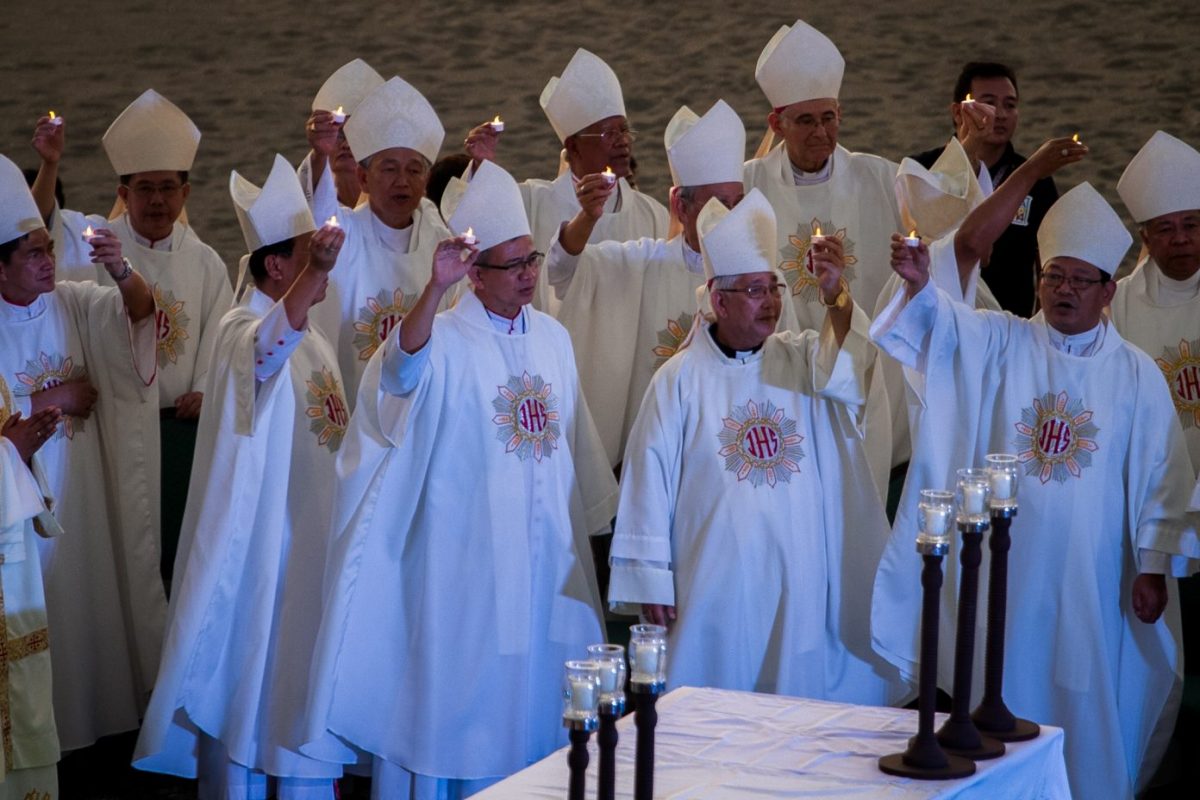The Catholic Bishops’ Conference of the Philippines has issued on July 22 a statement supporting Pope Francis’ motu proprio “Traditionis custodes (Guardians of the tradition)” that restricts the celebration of Traditional Latin Masses.
In Catholic canon law, motu proprio, literally “on his own impulse,” refers to a document issued by the pope on his own initiative and personally signed by him.
On July 16, Pope Francis issued a motu proprio that orders changes to Pope Benedict XVI’s 2007 apostolic letter “Summorum Pontificum,” which acknowledged the right of all priests to say Mass using the Roman Missal of 1962, which is in Latin.
Mass according to the 1962 Roman Missal is also referred to as the extraordinary form of the Roman Rite, the Tridentine Mass, and the Traditional Latin Mass.
“The apostolic letter is a fruit of the consultation with the Conferences of Bishops in 2020 and the recommendations made accordingly by the Congregation for the Doctrine of the Faith,” said the Philippine bishops.
“We express our obedience to and communion with the Supreme Pontiff as he leads us in the realization of the unity of the Church by means of the proclamation of the Gospel and in a particular manner in the celebration of the Eucharist,” said the bishops.
They added that as “guardians of the tradition,” “moderator, promoter, and guardian of the whole liturgical life of the particular Church,” the bishops “are to implement the provisions of the motu proprio with utmost care, patience, justice and pastoral charity.”
“We reiterate the appeal of Pope Francis that ‘every liturgy be celebrated with decorum and fidelity to the liturgical books promulgated after Vatican Council II, without the eccentricities,’” they added
Quoting the pope’s letter, the Filipino bishops said seminarians and new priests should “be formed in the faithful observance of the prescriptions of the Missal and liturgical books, in which is reflected the liturgical reform willed by Vatican Council II.”
The pope’s motu propio establishes that “the liturgical books promulgated by Saint Paul VI and Saint John Paul II, in conformity with the decrees of Vatican Council II, are the unique expression of the lex orandi of the Roman Rite.”
Lex orandi, literally “law of what is prayed,” refers to the relationship between worship and belief.
The bishops said the motu propio “gives us the guidelines on the modified use of the 1962 Roman Missal.”
With “Traditionis custodes,” Pope Francis said that it is now each bishop’s “exclusive competence” to authorize the use of the extraordinary form of the Mass in his diocese.
Since the motu proprio’s promulgation, some bishops from other parts of the world have said that priests may continue to offer the Traditional Latin Mass in their dioceses, while others have banned it.
Last year, the Vatican’s doctrinal congregation asked the world’s bishops to report on how “Summorum Pontificum” was being applied in their dioceses through a nine-point survey.







